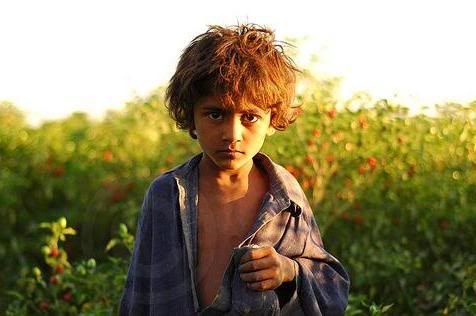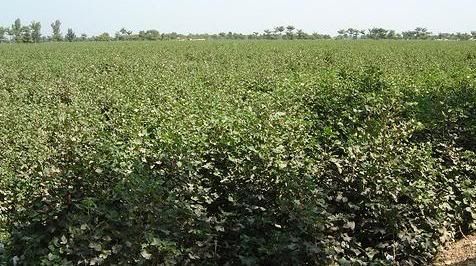News media is ripe with indications that Pakistan is leasing its agricultural land on long terms to Middle Eastern countries. Saudi Arabia and UAE are two countries whose names are mentioned in recent news. Since the Middle Eastern countries are mostly desert lands, they are trying to buy agriculture lands in other countries where they want to grow crops and take the produce home to feed their own population.

My quick question here is: Which land is going to feed Pakistani population then?
I am sure Pakistan will reap monetary benefits from any such lease of land but my concern with long term lease is what will happen few years down the road. There will be potentially millions of Pakistani to feed and our own agriculture land and archaic methods will not be enough to sustain local population’s food needs. And then in the middle of all this poverty there will be lush green pastures of foreign agricultural land; where all the latest methods of irrigation and agriculture will be used. The yields will be higher than ever but then all the food grown here will be taken away to foreign lands. Pakistan may have to buy back the food grown on its own land. For a short term monetary gain, I think this is a serious long term threat to our sovereignty. Doesn’t this situation reminds us of famous Allama Iqbal verse ‘jis khet se….’.
Over Reaction?
My paragraph above may seem over dramatization as one can argue what does it matter if we sold few acres of land here and there. To this I would say, my concern is for long term. Sale of few acres today can set the trend where more and more land will be bought by foreign countries. By the way few acres of today are not so few either. 500000 acres of agricultural land, located in all 4 provinces of Pakistan, is in negotiation with the Kingdom of Saudi Arabia. Once this land is leased or sold, will we ever be financially strong enough to buy back this again? Looks difficult, right! That is my concern. 0.5 million acres of land leased today will be gone for 99 years with more and more acres to follow.
Can there be a win-win solution?
If a foreign country comes to Pakistan, invests in our irrigation system, teaches local farmers methods of improved agriculture and buys produce from Pakistani farmers, then I believe it will be a better option than selling or leasing our land to other countries for short term profit.

Related News Story:
Here is a recent Dawn news story on the subject:
DUBAI: Saudi Arabia is in talks with Pakistan to lease an area of farmland nearly twice the size of Hong Kong in a bid to ensure food security, an official from Pakistan’s ministry of agriculture said on Tuesday. Gulf Arab states, heavily reliant on food imports and spurred on by a spike in prices of basic commodities, have raced to buy farmland in developing nations to guarantee supplies.
Over the past few weeks the Saudi government has been in talks with us to lease 500,000 acres (202,400 hectares) of farmland and we are currently in the process of locating which land we could give them, Tauqir Ahmad Faiq, regional secretary at the ministry of agriculture, said in an interview. In April, Pakistan said it would offer foreign investors one million acres of farmland for lease or sale and deploy special security forces to protect it. The land we will provide Saudi Arabia will be divided among the four provinces and they will be using it to grow a variety of produce such as wheat, fruits and vegetables, Faiq said by telephone from Lahore.
We are expecting a Saudi delegation to arrive after the month of Ramadan to further discuss the deal and see the land, but there is no set date when the deal will be signed. Saudi Arabia, which consumes 2.6 million tonnes of wheat a year, is abandoning a project to produce the grain domestically as water supplies run dry. Faiq said Pakistan had been approached by other Gulf players. “We have also received offers from a Qatari private investor to buy land, but nothing is final yet,” he said. He declined to give further details.
Critics have accused wealthy nations of making land grabs in developing countries and there has been increasing opposition to such deals from farming communities. In April, concerns over farmers’ rights led the government of Pakistan’s Balochistan province to block direct deals between United Arab Emirates-based private investors and farmers. The United Nations expressed concern in April that farmers’ rights in developing nations could be compromised as rich countries buy farmland. -Reuters
Photo Credits: Ameer Hamza and travel1jc
Article on Relevant Topic: ATP contributor Roshan Malik writes on Corporate Agricultutal Farming (CAF).



















































If Saudi Arabia wants more food in the future, then shouldn’t Pakistan Government worked up a strategy to SELL food to them? I mean wouldnt that be more beneficial to our economy? Plus, we keep our lands.
All that is needed is better planning – bring in the latest technology for agriculture and improve the quanity of food etc. Thus being able to sell more food!
I think this is really a poor decision. The politicians wont suffer .. but we will as always.
God .. How incompetent these fools really are.
This has been such an absorbing discussion. There is much more in my reading list as a result of this post.
Will the local population specifically and pakistan population will be economically better off as a result or coroporate farming? In this age old chicken or egg debate about economic development, I say either chicken(s) or egg(s) has(ve) the potential to start the chicken species. But if the egg is already bad, it is wise to expect nothing.
I strongly disagree with the argument that the Agriculture department of Pakistan is responsible for improvements in agricultural technology in Pakistan, and if they do this or that the agricutural output will increase. Or the implication that political system in Pakistan will eventually evoke awareness in the Haaris and mazaraas in Pakistan. Both of the above have been tested and found wanting.
There is no end in sight to the feudal status quo we are in right now. Let’s try a different system at a scale as large as the feudal lords. The devil will be in the details though. Safeguards at the legislative level need to be put in place in the lease terms ensuring rights of indigenous population, wherein a percent of generated output to be spent on growth of local infrastructure, including education and other employment opportunities. Also legislation to ensure, infact encourage the workers to be involved in some sort of unionized activity to protect their rights.
The rights of and the economic and development oppurtunities for the local population, along with ensuring sustainable agriculture methods are primary concerns which I believe can be taken care of in the pre-agreement legislative phase. Although I doubt that the feudal political elite will allow it.
I can see the following happening:
i). Saudi buys a huge chunk of pakistani agricultural land.
ii). Lots of dollars are poured into the Pakistani economy resulting in the overall amount of wealth people own or have access to to go up.
iii). And so in the short term people are happy, but they are fooled because….
iv). They need food, but they think that just because they have more money now they can easily buy it, BUT…
v). Food is in severe shortage as most of the farmland used to grow it is owned by foreign states and its food is siphoned off to foreign lands.
vi). The price of food rises to beyond what people can afford, despite their increased amount of dollars.
vii). Pakistanis are poorer than ever before, not because they don’t have dollars but because the inflation in food prices is so high that it won’t even matter.
viii). More poverty leading to more crime, prostitution (yes, prostitution. Don’t believe me? See this recent BBC feature: http://news.bbc.co.uk/1/hi/world/south_asia/822222 2.stm)
ix). More voids for groups like the Taleban to fill in.
So, now what do you think? A good deal? It will probably go ahead any way since we are ruled by a people that love fists full of dollars. Just like they sold Dr Aafia Siddiqui for dollars.
I am very surprised to see so many people commenting in favor of what is a very, very bad idea.
One argument being offered in defense of this plan is that Pakistani farm workers are abused anyway, and that since the Saudis, seeing as they never lift a finger themselves, will bring in international companies which will create working conditions at least marginally better than the current one.
This rationale is quite nonsensical. Just because our farm workers are already abused by the feudal system, does that mean we should go ahead and put another monkey on their backs? Also, I am always at a loss to understand why so many in our country are easily impressed with fancy branding by companies such as Emaar. The inhumane, humiliating exploitation of South Asian workers by the Gulf countries has been documented time and again. The only reason multinational companies treat their employees fairly in Western countries is that they know they will get hit with massive lawsuits leading to almost certain financial ruin if they step out of line.
I also disagree with the argument that this will lead to increased crop yields due to better farming practices, etc. I don’t doubt that our methods are as efficient as they can be, but that is why we have an agriculture department! It’s their responsibility to come up with new ideas, provide guidelines based on proper scientific studies of soil, climate, etc. If such advice is provided, then what kind of farmer (feudal or otherwise) will forgo the chance to increase yields and hence income?
The reality is that Saudi Arabia has been a source of many problems for Pakistan. Their financing of extremists, and their close involvement in the Pakistani political dramas, to name just a couple.
Ironically, I take some comfort in the fact that Pakistan is controlled by a small number of avaricious land-owning families who will resist competition at any cost.
If Saudi Arabia needs food for its people, it should buy it from us like everyone else. Why is it that in most Gulf countries, non-citizens are not allowed to own land, leaving many business operators at the whim of exploitive “sponsors” who can bring their operation to a halt at any time.
Also, in return for agricultural land, are they willing to give us a number of their oilfields?
Some critical information is missing in this discussion: Where would the irrigation water come from? How much money would the government get for selling or leasing the land? How much employment will these farms generate? And, the land that is planned to be sold or leased, what use it is being put to now? Is it barren land?